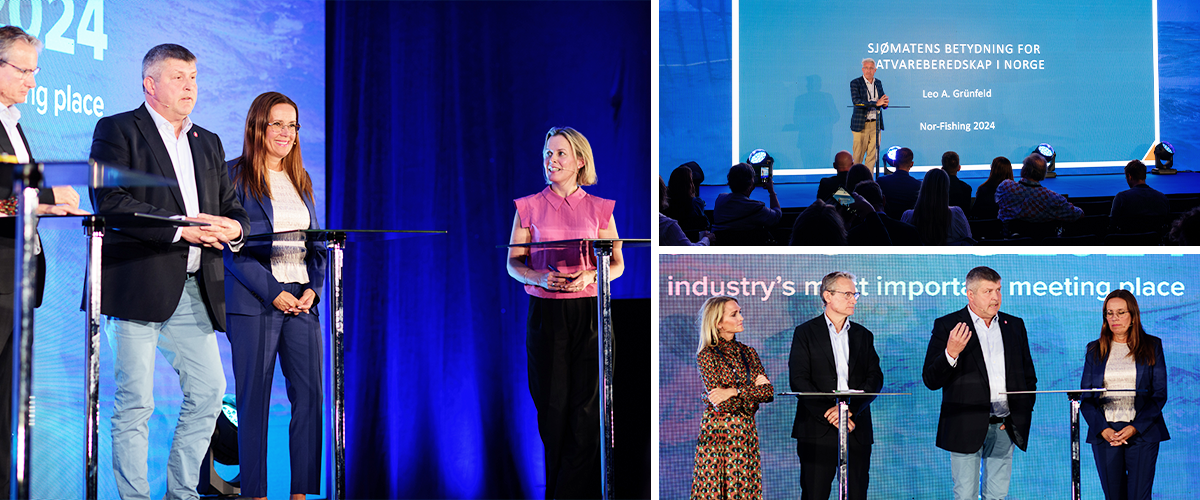Food supply during times of crisis debated during the exhibition
20. August 2024 · Ukategorisert
On the opening day of Nor-Fishing 2024, politicians and key figures in the seafood industry met to discuss whether Norway’s seafood production is sufficient to supply the population during a crisis.
Led by Siv Sandvik, political editor at Adresseavisen, the panel grappled important questions regarding our degree of self-sufficiency, the conflict of interest between offshore farming and landbased agriculture—and what the national emergency plans should look like.
The debate was opened with a speech from Leo Grünfeld at the analysis agency Menon, who presented Menon’s findings in their latest report on seafood’s role in the food supply chain.
The panel
- Minister Marianne Sivertsen Næss from the Labor Party
- Politician Olve Grotle from the Conservative Party
- Politician Bengt Rune Strifeldt from the Progress Party
- Director of Communications Kristin Langeland from The Norwegian Seafood Federation
- Secretary General Sverre Johansen in the Norwegian Fishermen’s Association
- Commentator Hans Bårdsgård at Nationen

Conflict between sea and land?
Sandvik is masterful in her role as debate moderator and keeps the panel on the right track, while not afraid to ask tough questions. One of the topics she challenged the panel on was whether there is a conflict of interest between land-based agriculture and the seafood industry.
Minister of Fisheries, Marianne Sivertsen, believes the conflict is artificial, and points out that Norway needs both industries—but the Minister emphasizes that she is arguing the case of the fishing industry, and points out that seafood must be included in the national emergency plans.
Moderator Sandvik asks Nationen commentator Hans Bårdsgård if the arguments against the seafood industry are rooted in a fear of losing government subsidies.
“Seafood production can be increased during a war, and we already produce more seafood than domestically consumed. Land-based farming does not produce enough to cover the current demand,” Bårdsgård replies from the stage and calls for continuous production of food on land, as the seafood industry has today.
Agreement on the importance of seafood
There is, however, broad agreement within the panel on the importance of seafood, and the panel point out that seafood has a natural part in a national emergency plan. However, there is disagreement about how such a plan is best implemented.
Politician Olve Grotle from the Conservative Party believes, for instance, that the degree of self-sufficiency takes up too much space in the discussion about emergency preparedness, and advocates looking at the degree of coverage instead.
The panel ends the debate with a unanimous message: We can all eat more fish.